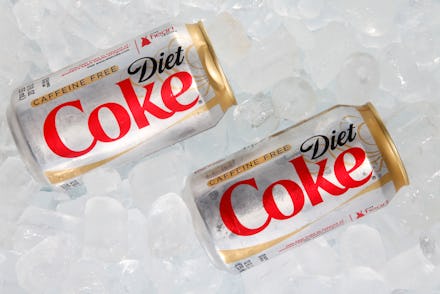Diet Soda, the Timeless Health Scam That People Will Seemingly Always Fall for

Diet soda has been around since the 1950s. A 2013 Gallup poll indicated that 24% of adults drink it over the regular stuff. But even though it's billed as the lesser evil of it's sugar-packed counterpart, diet soda hasn't actually proved to be much better, health-wise; in fact, certain sources would argue that it's worse.
Read more: These 5 "Health" Products and Procedures Are Actually Scams and Possibly Dangerous
Why? For one, diet soda consumption may result in belly fat buildup: A 2015 study indicated that, over a 10-year period, diet soda drinkers accumulated three times the abdominal fat than did non-drinkers. That's because the synthetic sweetener in diet soda, while empty of calories, is far sweeter than regular sugar.
"Regular sugar has caloric consequences," said Dr. Helen Hazuda, a professor of medicine at the University of Texas Health Science Center at San Antonio, according to Time. "Your body is used to knowing that a sweet taste means you are ingesting energy in the form of calories that, if you don't burn them off, is going to convert to fat."
Basically, diet soda confuses your body into producing more fat, the opposite of diet anything's intended effect. Any kind of soda may well lead to tooth decay and loss of bone mass, but synthetic sweetener — aspartame, for example — may also alter brain chemistry and damage neurons, resulting in headaches, anxiety, insomnia, memory loss, fatigue, numbness, vision issues and speech problems. It could even result in depression. Its side-effects are still under investigation.
Diet soda has, however, been linked with an escalated risk of Type 2 diabetes, according to Health, and may also be a moderately dangerous mixer as artificial sweetener is more rapidly absorbed into the blood than sugar. And, as Health reported, diet soda has also been associated with an increased incidence of stroke, heart attack and vascular death.
Most soft drinks are bad for us, but the fact that diet soda retains its health-suggestive label makes it look a lot like a wolf in sheep's clothing. Drink at your own risk.